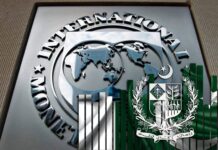The government’s decision to abandon the proposal to extend the payment of electricity bills for consumers using up to 200 units over three months, despite a previous agreement with the International Monetary Fund (IMF), indicates a shift in priorities towards fiscal considerations and revenue collection from electricity bills.
According to Caretaker Energy Minister Muhammad Ali, the impact of this decision was deemed nominal, as most of the bills had already been collected, and there are plans to gradually reduce electricity bills starting from October.
The minister said that the government is actively pursuing various power projects, including a 660 MW solar project in Muzaffargarh, a 330 MW imported coal-based plant in Gwadar, and the C-5 nuclear power plant with a 1,200 MW installed capacity. These projects are being developed despite challenges related to the capacity payment trap in the energy sector.
He said that the 660 MW solar project will proceed once a competitive price is obtained at a reasonable level. This suggests a commitment to renewable energy sources in Pakistan’s energy mix.
Responding to a question, Muhammad Ali said that Pakistan is exploring the possibility of importing more crude oil from Russia. Establishing a special-purpose vehicle (SPV) is being considered to ensure sustainable imports of Russian crude oil. This move could help diversify Pakistan’s sources of energy resources.
The Energy Minister expressed concerns about gas availability during the upcoming winter season and emphasized the need for long-term agreements to secure sustainable supplies of Re-Gasified Liquefied Natural Gas (RLNG).
























